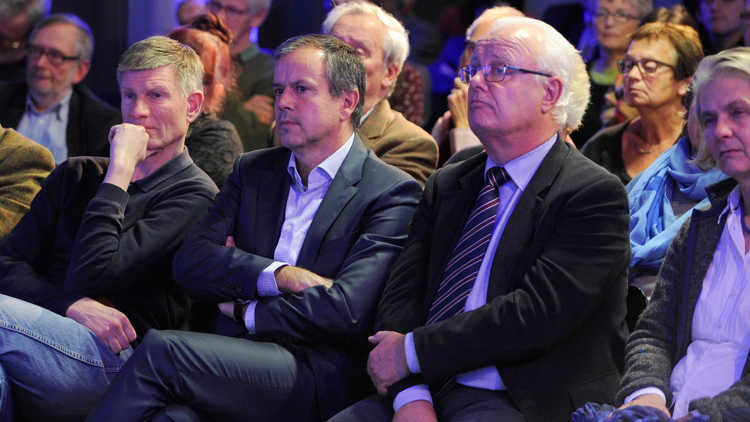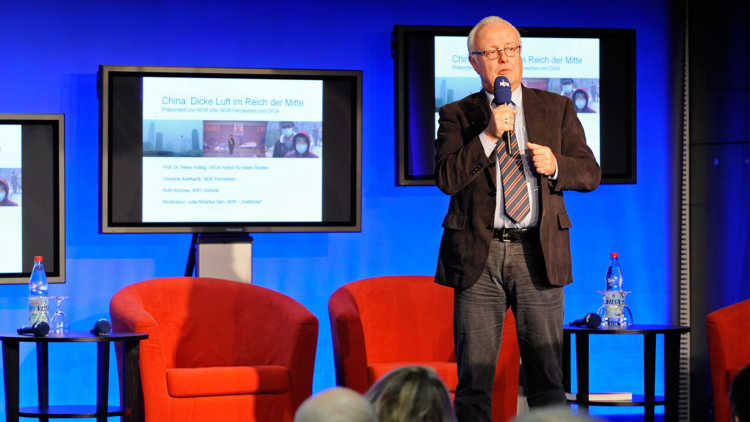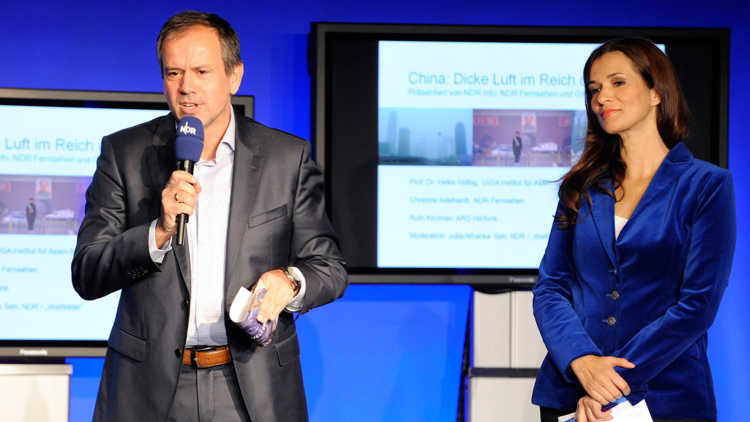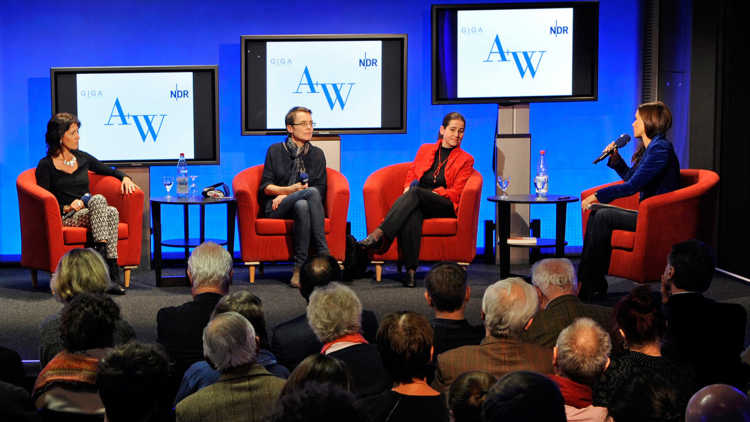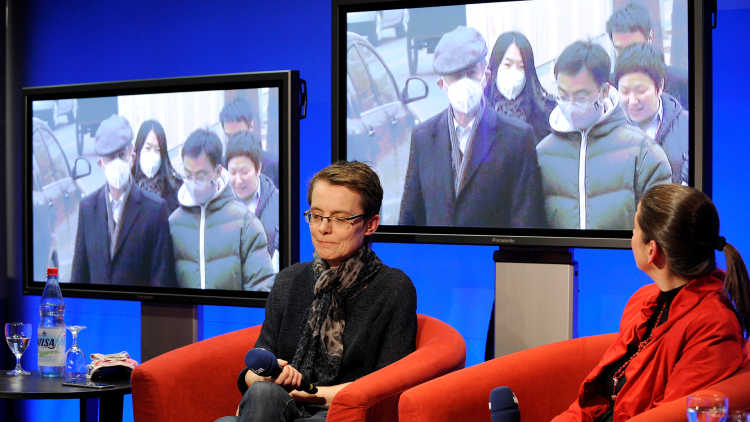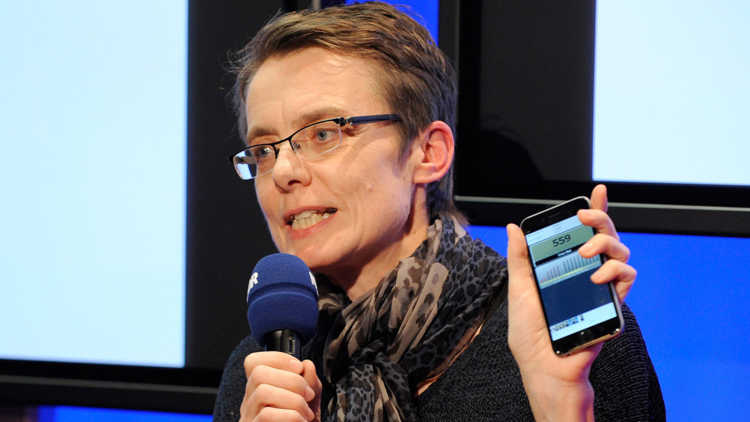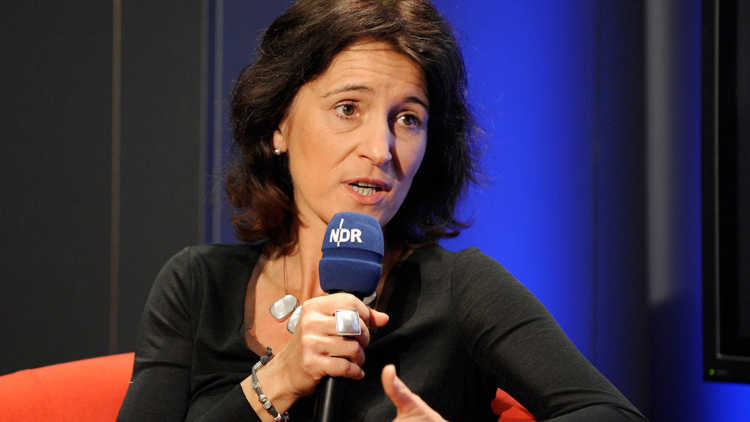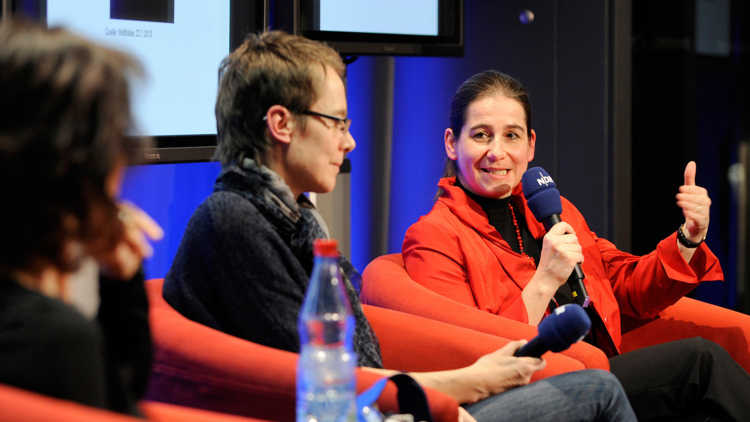- Home
- Media Relations
- Journalism and Scholarship Converge in Hamburg
Event
Journalism and Scholarship Converge in Hamburg
It was standing room only at the inaugural event of the new “Border Crossers” series coordinated by the GIGA and NDR. The topic: China’s climate future.
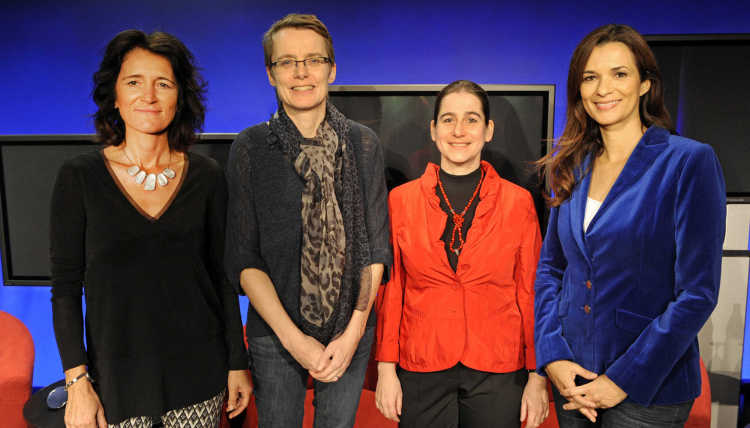
As the eyes of the world are fixed on the UN Climate Change Conference in Paris, air pollution in Beijing has reached a record high. “They used to say: ‘It’s fog,’” says ARD radio correspondent Ruth Kirchner, in response to the question of how long air pollution has played a role in public discourse in China. Only in the past couple of years have the emissions levels been published and made available to people in Beijing, by way of an app. “The emissions levels haven’t been within the range of the scale for days now,” reports Kirchner, who has worked out of ARD’s Beijing studio for many years.
More and more people in China are taking to the streets in the name of environmental protection. There are around 150,000 protests a year, according to NDR TV correspondent Christine Adelhardt, who has also been reporting from China for years. The panel’s moderator, Julia-Niharika Sen, asked GIGA researcher Prof. Heike Holbig what we should make of China’s latest proclamation that it would do more to protect the environment. “I wouldn’t characterise it as revolutionary, but it is an about-face,” said the expert. “China has the potential here to become a model for other developing and emerging countries.”
The event series “Grenzgänger – Auslandskorrespondenten treffen Wissenschaftler” (“Border Crossers – Foreign Correspondents Connecting with Scholars”) kicked off on 30 November 2015 in the foyer of the NDR building on Rothenbaumchaussee in Hamburg. A co-creation of the GIGA and NDR, the series aims to combine the strengths of scholarship with the advantages of journalism. The goal is to provide an interested public with a background for current developments. On one side is the GIGA, whose researchers bring to the table expertise on various world regions and on social, economic, and political issues; on the other side is NDR, whose radio and television correspondents boast many years of experience reporting from all over the world. The idea for the event series was developed by Henner Fürtig, director of the GIGA’s Institute for Middle East Studies, and NDR’s editor-in-chief, Andreas Cichowicz.
Norddeutscher Rundfunk (NDR) (Northern German Broadcasting) is one of the largest public radio and television broadcasters in Germany and a member of the ARD consortium. In addition to domestic topics, the NDR also reports on international events, relying on its extensive network of foreign correspondents. Its highly acclaimed TV productions Tagesschau and Weltspiegel reach an audience of millions within Germany. Like the GIGA, NDR is based in Hamburg.
Environmental and climate policy wasn’t the only topic taken up at the opening event. The participants also discussed Xi Jinping’s leadership style and claim to power; the ways in which members of the opposition and various forms of protest are dealt with; the image of China trotted out by its leadership both inside and outside the country; and the personal impressions of the three panelists.
Julia-Niharika Sen – presenter of, among other programmes, NDR’s international news magazine Weltbilder – received a diverse set of responses when she asked the three panelists what they think China might look like in 20 years. Ruth Kirchner sees in China a country fraught with tensions and unresolved problems. In her view, the state has become more authoritarian and more centralised in recent years – an opinion shared by Christine Adelhardt. Adelhardt, however, refrained from making any predictions, saying, “I’d be happy if I understood the China of today.” Prof. Heike Holbig pointed to a shift that began when President Xi Jinping took office. Many had hoped that he would rule with a firm hand and act decisively – and that’s exactly what he’s doing. All of the panelists in addition to many of the audience members concurred with her succinct summation: “The world is too big for easy answers – that goes for China, too.”
Events in the series “Border Crossers – Foreign Correspondents Connecting with Scholars” are set to take place three times a year.
